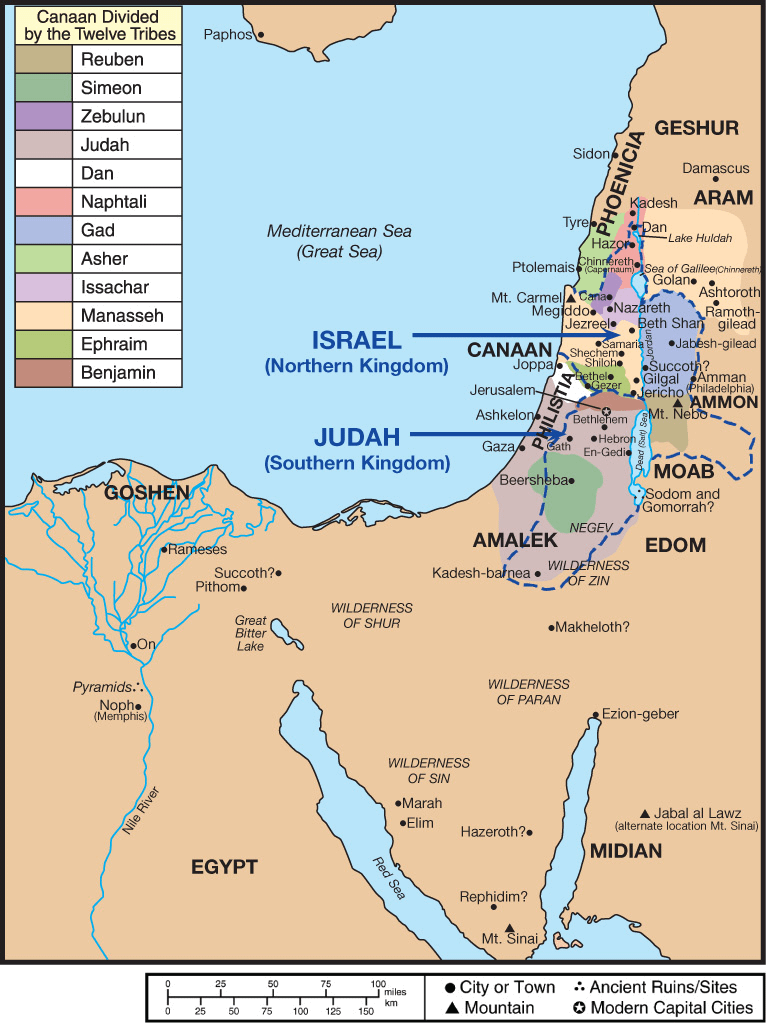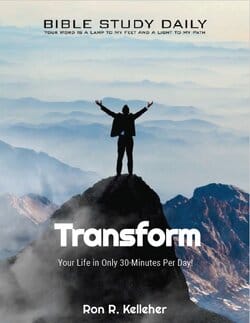What I Noticed Today (1 Kings 12-13)
1 Kings 12
Rehoboam succeeded his father Solomon as king.
In verses 1-5, Rehoboam went to Shechem to be made the king of the Israelites.
- Leaders of the northern tribes summoned Jeroboam to represent them before Rehoboam. (Jeroboam had fled to Egypt to get away from Solomon.)
- Jeroboam and the leaders of Israel came to Rehoboam and asked him to lighten the oppressive load that had been imposed on them by Solomon.
- Rehoboam told the people he would respond to their request in three days.
In verses 6-11, Rehoboam consulted with the advisors who had served his father, Solomon.
- Solomon’s advisors told Rehoboam if he would be a servant to the people and speak kindly to them, he would secure their loyalty forever.
- Rather than listening to the advice of the elders to lighten the tax load, Rehoboam sought out the advice of his friends who told him what he wanted to hear—increase the burden on the people.
Note: Rehoboam was not an inexperienced, young man when he became king. He was 41 years old!
In verses 12-19, on the third day, Rehoboam told the people not only would he not lessen their tax load, but he would also increase it.
- This caused the people of Israel to divide, with only the people of Judah remaining completely loyal to Rehoboam.
- The ten northern tribes banded together and rebelled against the tribe of Judah.
In verses 20-24, the Israelites appointed Jeroboam as their king. Rehoboam returned to Jerusalem and assembled an army of 180,000 men to reunite the tribes under his leadership.
- A message from God came to Shemaiah, the man of God, who told Rehoboam he was not to attack his Israelite brothers.
- Rehoboam and the army did as the Lord said, and they returned home.
In verses 25-33, Jeroboam established Shechem as his capital.
- Afraid that the people would journey to Jerusalem for their sacrifices and return to Rehoboam, Jeroboam had golden calves made with one placed in Dan (in the north) and one placed in Bethel (in the south) and said here is your God that brought you out of Egypt.
- Jeroboam built shrines and even appointed whoever wanted to be a priest.
- Jeroboam established a festival on the fifteenth day of the eighth month (like the Day of Atonement). He offered sacrifices on the altar and burned incense.
Note: God had promised Jeroboam that he would establish Jeroboam’s rule if he would follow and obey God, but Jeroboam immediately turned away from God. He appointed priests from non-Levites, and he created imitations of altars and festivals on his own, which led the people away from God rather than to Him.
1 Kings 13
In verses 1-10, Jeroboam built up high places and altars and made sacrifices there. But this transgression of leading the people away from God angered God, and He sent a prophet to confront Jeroboam.
- The prophet conveyed God’s message that a man from the house of David named Josiah would demolish the altar and desecrate it with human remains, and slaughter the false priests.
Note: Josiah, who reigned from 640-609 B.C., fulfilled this prophecy 290-years after it was given.
- Jeroboam cried out, calling for the man of God to be arrested. When he reached his arm out, it became withered.
- Jeroboam pleaded with the prophet to restore his arm, and God restored it, yet Jeroboam did not repent of his ways or change his course of action.
- Jeroboam invited the man of God to his home to eat and receive a reward, but the man of God refused and left.
- As the prophet left Jeroboam, God told him to leave, not stop, and return home via a different route.
In verses 11-32, along the way, another man who claimed to be a prophet lied to the man of God who had prophesied against Jeroboam and told him an angel had appeared to him and that prophet should stop and eat with him.
- This was a direct contradiction of what God had told the prophet, yet he stopped and ate with the man.
- As a result, God passed judgment on the prophet, and a lion killed him on his way home. The lion did not eat him or maul him but stood beside him.
- When the old prophet heard about it, he saddled his donkey, retrieved the man of God’s body, then buried him in his own tomb.
In verses 33-34, Jeroboam heard about God’s judgment on the man of God, but he did not repent of his ways. Jeroboam continued to appoint new priests from non-Levites and worship at high places. For this sin (falling away from God, apostasy), the house of Jeroboam would be wiped out.
Some thoughts for additional consideration:
- Rehoboam had a chance to be a true servant leader, but instead, he chose to have the people serve him, and it cost him dearly, the nation of Israel divided. Even though that division did not immediately cause a civil war, it did pit the people of Israel against one another.
- The prophet was lied to by someone who said they had a message from God. It is important that when God directs us to do one thing, we are very careful about listening to those who say they have a word from God for us that contradicts what God has already told us. Had the man of God stuck to doing what God told him, his life would have ended differently.
What did you notice in your study today? Feel free to visit the website and leave a question or a comment.


